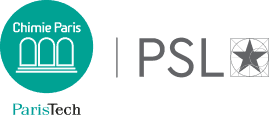inorganic materials elaboration
MH24OP.ELA
written final exam
This course presents the fundamentals of materials elaboration.
A first part presents the basics of monocristalline synthesis, starting from reflexion based on phase diagrams, nucleation-growth concepts and illustrations with various hot-temperature monocristalline routes. Such routes are predominant in the optic and photovoltaic domains. A second part deals with the physical and chemical principles underlying the solid-state densification and sintering of powders to obtain technical ceramics. Technical ceramics are a wide family of high-value materials for structural or functional applications (magnetic, optic, dielectric…). On the other hand, glass and glass-ceramics are materials prepared from the liquid state. Their elaboration is briefly presented at the end of this part. . The third part concerns the synthesis of small inorganic materials by low temperature routes. Basics of aqueous precipitation, sol-gel condensation, high-boiling solvent synthesis are thoroughly described, followed by the presentation of different methods for a chemist concerning the specific elaboration of thin or thick films.
At the end of this course, the students:
1) are aware of the various synthesis routes to elaborate inorganic materials;
2) Can evaluate the pros and cons of a specific synthesis route;
3) can chose the most adapted synthesis route for their study;
4) understand the mechanisms involved in the various synthesis routes;
5) propose consistent modification of the synthesis.
Teaching language: EN
Documents:
documents in english
Link: https://coursenligne.chimie-paristech.fr/course/index.php?categoryid=11

